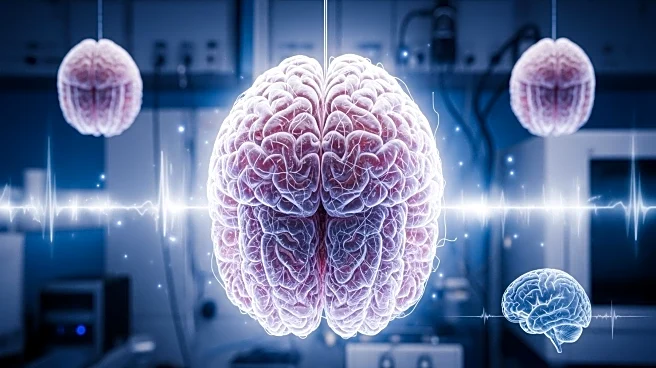What's Happening?
Madeline Lancaster's creation of brain organoids has revolutionized brain research, providing insights into what makes the human brain unique. These organoids, which are not fully functioning brains, allow researchers to study brain development and model diseases like microcephaly. The research has revealed differences in stem cell behavior between humans and other species, offering potential applications in drug screening and therapy development.
Why It's Important?
Brain organoids represent a significant advancement in understanding human brain development and disorders. They offer a new avenue for studying complex brain diseases and could lead to breakthroughs in treatment options for mental health and neurodegenerative conditions. The ethical implications of using organoids in research also highlight the need for careful consideration as the technology advances.
Beyond the Headlines
The use of brain organoids raises ethical questions about consciousness and the potential for creating enhanced cognitive abilities in animals. As research progresses, it will be important to establish guidelines to ensure ethical practices in the development and application of this technology.









